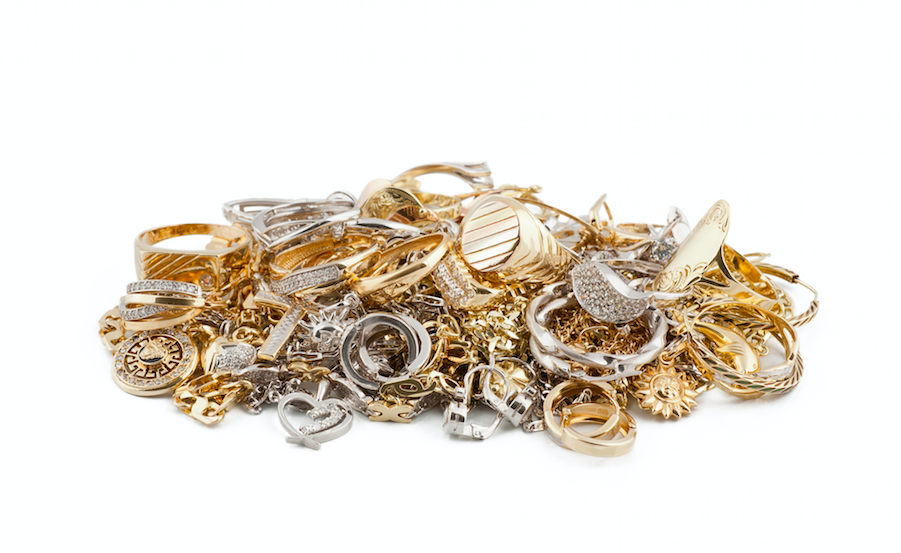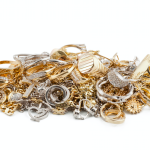If you're in the market for a new piece of jewelry, you've likely come across the dilemma of choosing between white gold and platinum. Both metals are popular choices for engagement rings, wedding bands, and other fine jewelry, but what sets them apart? In this article, we'll explore the key differences between white gold and platinum to help you make an informed decision.
White Gold
White gold is a stunning alternative to traditional yellow gold, known for its timeless appeal and luminous sheen. But what exactly is white gold? Well, it's not entirely what its name suggests. Pure gold is naturally yellow, so to achieve that coveted white hue, a mixture of gold and other metals is used.
1. Composition and Durability
White gold is typically made by alloying pure gold with white metals such as palladium, nickel, or silver. This creates a beautiful white appearance, giving it the look of platinum at a more affordable price. However, it's essential to note that white gold jewelry is often coated with rhodium, a rare and precious metal, to enhance its whiteness and protect against scratches.
2. Color and Maintenance
Over time, the rhodium plating on white gold jewelry may wear off, revealing the natural yellowish tint of the underlying gold alloy. But don't worry, this is a normal occurrence and can easily be remedied by reapplying the rhodium plating. So, if you choose white gold, be prepared to maintain its brilliance by visiting your jeweler periodically for a quick touch-up.
3. Affordability and Availability
One of the advantages of white gold is its relative affordability compared to platinum. As gold is more readily available and less dense than platinum, it tends to be a more budget-friendly option. So, if you're looking for a dazzling, white metal without breaking the bank, white gold might be the perfect choice for you.
Platinum: A Precious Rarity
Platinum exudes a sense of luxury and sophistication like no other metal. It has long been associated with prestige and exclusivity. But what sets platinum apart from white gold? Let's find out!
1. Purity and Density
Unlike white gold, platinum is a naturally white metal. It is incredibly dense, which adds to its allure and durability. Platinum jewelry is typically 90-95% pure, making it an excellent choice for those with sensitive skin, as it is hypoallergenic and less likely to cause irritations.
2. Strength and Durability
Platinum is renowned for its exceptional strength and longevity. It is highly resistant to wear and tear, making it an ideal option for everyday jewelry that can withstand the test of time. While white gold may require periodic maintenance, platinum jewelry maintains its luster and brilliance with minimal upkeep.
3. Rarity and Prestige
One of the most notable differences between white gold and platinum lies in their rarity. Platinum is a much rarer metal than gold, making it more precious and valuable. Its scarcity adds a certain exclusivity to platinum jewelry, appealing to those who appreciate its uniqueness and extraordinary craftsmanship.
So, Which Metal Should You Choose?
Ultimately, the choice between white gold and platinum comes down to your personal preferences, budget, and lifestyle. White gold offers a brilliant white appearance at a more affordable price point, while platinum boasts exceptional durability and prestige. Consider your desired aesthetics, durability needs, and long-term investment value when making your decision.
When purchasing fine jewelry, it's essential to buy from reputable jewelers who provide accurate metal quality information and offer certificates of authenticity. Take the time to consult with a trusted professional to ensure you make an informed choice that aligns with your desires and requirements.
It's worth mentioning that both white gold and platinum can be stunning choices for engagement rings, wedding bands, or any other piece of jewelry. Each metal has unique qualities that contribute to its appeal. Some individuals are drawn to the brilliance and affordability of white gold, while others are captivated by the rarity and prestige of platinum.
When selecting your metal, consider factors such as your budget, lifestyle, and personal style. If you're someone who appreciates the elegance of white jewelry but doesn't want to compromise on quality, white gold could be an excellent option. Its affordability allows you to invest in a larger and more intricately designed piece without breaking the bank.
On the other hand, if you desire a metal that exudes luxury, durability, and rarity, platinum might be the perfect match for you. Its naturally white color, exceptional strength, and hypoallergenic properties make it an ideal choice for those seeking a piece of jewelry that will last a lifetime.
Remember that both white gold and platinum can be beautiful and valuable additions to your jewelry collection. Ultimately, it's a matter of personal preference and what speaks to your heart.










